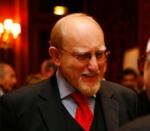
- Germany today is home to about 16 million people with an immigrant background. Their integration continues to be a key task for our government.
- Our society should be characterized by respect, mutual trust, shared responsibility and a sense of community. Therefore, the Federal Government attaches great importance to strengthening social cohesion in our co1.mtry.
- In recent decades, Gem1any has become more religiously and culturally diverse, above all as a result of immigration by people from predominantly Muslim countries.
- Approximately four million Muslims now live in Germany (most of them are of Turkish origin). Almost half of these hold German citizenship. Therefore, the German Government attaches great importance to promoting and strengthening intercultural dialogue.
- The German Islam Conference (DIK) is the first institutionalized dialogue between representatives of the German state and representatives of Muslims living in Germany. The DIK was launched in 2006 by then-Interior Minister Dr. Wolfgang Schäuble. It is considered to be the most important forum between the Gem1an state ru1d Muslims living in Germru1y.
- The primary aim of the German Islam Conference is to improve the dialogue between the state ru1d Muslims in Germany, thereby making a contribution to the social integration of Muslims into German society. The DIK also aims to strengthen cohesion an1id growing religious diversity and to counteract social polarisation and segregation.
- According to the Federal Office for Migration and Refugees, there are approximately 540,000 Muslims in Germany who come from the countries of the former Yugoslavia, mostly from Bosnia. Bosnians are the second largest group of Muslims (14% of all Muslims) in Germany.
- Approximately 89 per cent of Bosnians in Germany consider themselves to be religious or very religious but they rarely attend religious events. Bosnians in Germany have successfully integrated into German society.
- Bosnian Islam has a long history of co-existing alongside Christians. The separation of state ru1d religion has been a reality for Bosnian Muslims since 1878. In addition, they have developed a transparent organisational structure. The structure of Islam in Bosnia is replicated in Gem1any.
- The "Islamic Community of Bosnians in Germany" (IGBD) has been invited to participate in the second phase of the German Islam Conference so that Bosnian Muslims are now also represented in the Conference.
- The IGBD is the federal umbrella organisation of Muslim Bosnians and was founded in 1994 (formerly: VIGB e. V - Vereinigung islamischer Gemeinden der Bosniaken in Deutschland [Association of Islamic communities of Bosnians in Germany]. Mustafa Efendi Klanco has been the Chairnum and mufti of the IGBD since 2007.
- The IGBD considers itself as a foreign branch of the Islamic community in Bosnia-Herzogovina and is represented by two delegates in the "General Assembly" (sabor) of the Islamic community in Bosnia-Herzogovina.
- Today in Germany there are 65 Bosnian mosque communities and cultural centres with around 30,000 members who belong to IGBD. Most of these mosques have permanent imams appointed by the IGBD. An important subject in the second phase of the German Islam Conference is setting up and establishing Islamic theology courses at German universities with the aim of training Islan1ic theologians, imams and Islamic religious studies teachers in Germany. The IGBD will certainly be able to contribute much experience in this area.
- The spiritual leader of the Bosnians is Dr Mustafa Efendi Ceric whose work and efforts have been recognized and appreciated in Germany. He was awarded the Theodor Heuss prize in 2007 for his efforts to promote the integration of Muslims in European society and peaceful dialogue between religions. He also received the Eugen Biser prize in 2008 for his commitment to inter-faith dialogue.